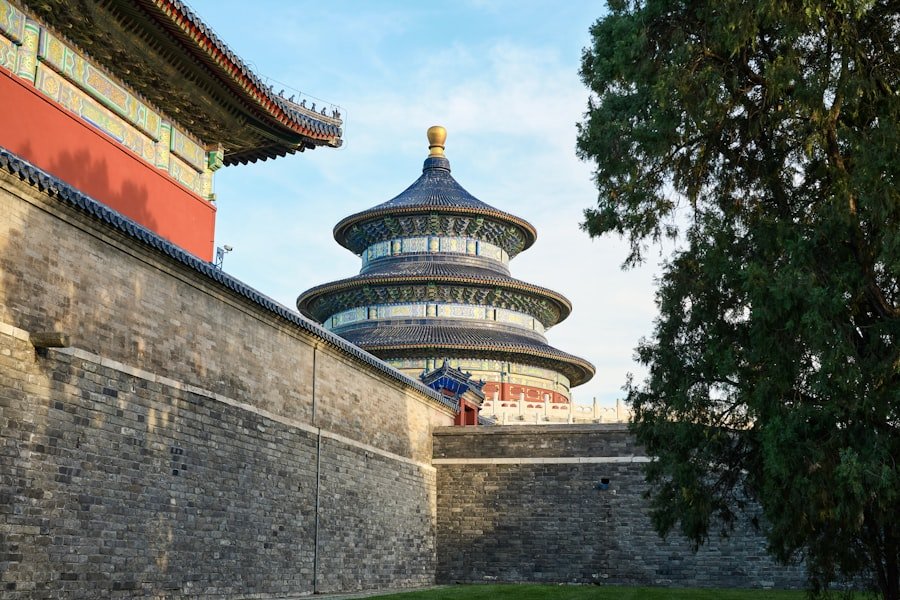The Hanyu Shuiping Kaoshi, commonly known as HSK, is the standardised test for Mandarin Chinese proficiency, designed for non-native speakers. HSK 1 is the first level of this examination, aimed at beginners who have just embarked on their journey to learn the Chinese language. This level assesses the ability to understand and use simple Chinese phrases and sentences, laying a solid foundation for further language acquisition.
At the LC Chinese School in Oslo, we offer specialised courses tailored to help students prepare for the HSK test, ensuring they are well-equipped to achieve their desired level of proficiency. The significance of HSK 1 cannot be overstated, as it introduces learners to essential vocabulary and basic grammatical structures. Mastering this level not only boosts confidence but also opens doors to more advanced studies in Chinese.
Our courses at LC Chinese School are designed to provide a comprehensive understanding of the language, focusing on practical usage and real-life scenarios. With expert instructors and a supportive learning environment, students can expect to develop their skills effectively and efficiently. Unlock a world of opportunity.
Table of Contents
ToggleSummary
- HSK 1 is the first level of the Chinese Proficiency Test, focusing on basic vocabulary and grammar.
- Nouns and pronouns are essential for building sentences and expressing ideas in Chinese.
- Adjectives and adverbs help to describe and modify nouns and verbs, adding depth to the language.
- Verbs and conjunctions are crucial for forming sentences and connecting ideas in Chinese.
- Numbers and quantifiers are important for expressing quantities and counting in Chinese.
Nouns and Pronouns
Nouns and pronouns form the backbone of any language, and in Mandarin, they are no exception. At HSK 1, learners are introduced to a variety of common nouns that are essential for everyday communication. These include words for people, places, and objects, such as “人” (rén) meaning “person,” “书” (shū) meaning “book,” and “学校” (xuéxiào) meaning “school.” Understanding these basic nouns allows students to construct simple sentences and engage in basic conversations.
Pronouns in Mandarin are equally important as they help in avoiding repetition and making sentences more fluid. HSK 1 covers personal pronouns such as “我” (wǒ) for “I,” “你” (nǐ) for “you,” and “他” (tā) for “he.” These pronouns are fundamental in forming sentences and expressing thoughts. At LC Chinese School, we emphasise the practical application of these nouns and pronouns through interactive exercises and conversational practice, ensuring that students can use them confidently in real-life situations.
Adjectives and Adverbs

Adjectives and adverbs play a crucial role in enriching language and providing more context to conversations. In HSK 1, learners are introduced to basic adjectives that describe qualities or states, such as “大” (dà) meaning “big,” “小” (xiǎo) meaning “small,” and “好” (hǎo) meaning “good.” These words allow students to express opinions and describe their surroundings more vividly. For instance, one can say “这本书很好” (zhè běn shū hěn hǎo), which translates to “This book is very good.” Adverbs, on the other hand, modify verbs and adjectives, providing additional information about how actions are performed or the degree of an adjective.
In HSK 1, learners encounter adverbs like “很” (hěn) meaning “very,” which is often used to intensify adjectives. For example, “他很高” (tā hěn gāo) means “He is very tall.” At LC Chinese School, we focus on helping students understand the nuances of using adjectives and adverbs through engaging activities that encourage them to describe their experiences and surroundings in Mandarin.
Verbs and Conjunctions
Verbs are the action words that drive sentences forward, making them essential for effective communication. In HSK 1, students learn fundamental verbs such as “是” (shì) meaning “to be,” “有” (yǒu) meaning “to have,” and “去” (qù) meaning “to go.” These verbs form the basis of many simple sentences and are crucial for expressing actions and states of being. For instance, one can say “我去学校” (wǒ qù xuéxiào), which means “I go to school.” Conjunctions are equally important as they connect words, phrases, or clauses within sentences.
In HSK 1, learners are introduced to basic conjunctions like “和” (hé) meaning “and,” which allows them to combine ideas seamlessly. For example, one might say “我有书和笔” (wǒ yǒu shū hé bǐ), translating to “I have a book and a pen.” At LC Chinese School, we provide ample opportunities for students to practise using verbs and conjunctions in context through dialogues and role-playing exercises, enhancing their conversational skills.
Numbers and Quantifiers
Numbers are an integral part of daily life, and mastering them is essential for effective communication in any language. In HSK 1, students learn the basic numbers from one to ten: “一” (yī), “二” (èr), “三” (sān), up to “十” (shí). These numbers are foundational for counting objects, telling time, and discussing quantities.
For instance, one can say “我有三本书” (wǒ yǒu sān běn shū), which means “I have three books.” Quantifiers are used alongside numbers to specify the amount or quantity of nouns. In Mandarin, quantifiers are often required when counting objects or people. For example, when referring to books, one would use the quantifier “本” (běn), resulting in phrases like “两本书” (liǎng běn shū) meaning “two books.” At LC Chinese School, we emphasise the importance of numbers and quantifiers through practical exercises that involve shopping scenarios or counting games, making learning both enjoyable and relevant.
Time and Dates

Understanding time and dates is crucial for effective communication in any language. In HSK 1, learners are introduced to essential vocabulary related to time, including words like “现在” (xiànzài) meaning “now,” “今天” (jīntiān) meaning “today,” and “明天” (míngtiān) meaning “tomorrow.” These terms enable students to discuss their schedules and make plans with others. For instance, one might say “我今天去学校” (wǒ jīntiān qù xuéxiào), translating to “I go to school today.” Dates are also an important aspect of time-related vocabulary.
Students learn how to express days of the week and months of the year in Mandarin. For example, “星期一” (xīngqī yī) means “Monday,” while “一月” (yīyuè) refers to January. At LC Chinese School, we incorporate activities that involve discussing daily routines or planning events, allowing students to practise using time-related vocabulary in meaningful contexts.
Directions and Locations
Navigating new environments requires a solid understanding of directions and locations. In HSK 1, learners acquire essential vocabulary related to directions such as “左边” (zuǒbiān) meaning “left,” “右边” (yòubiān) meaning “right,” and “前面” (qiánmiàn) meaning “in front.” This vocabulary is invaluable when asking for or giving directions. For instance, one might ask, “图书馆在哪里?” (túshūguǎn zài nǎlǐ?), which translates to “Where is the library?” Additionally, students learn location-related vocabulary that helps them describe where things are situated.
Words like “这里” (zhèlǐ) meaning “here,” and “那里” (nàlǐ) meaning “there,” enable learners to provide clear instructions or descriptions. At LC Chinese School, we engage students in practical exercises that simulate real-life situations where they must ask for directions or describe locations, enhancing their confidence in navigating Mandarin-speaking environments.
Food and Drinks
Food is a universal topic that brings people together, making it an essential area of vocabulary for language learners. In HSK 1, students explore common food items such as “米饭” (mǐfàn) meaning “rice,” “面条” (miàntiáo) meaning “noodles,” and various fruits like “苹果” (píngguǒ) meaning “apple.” This vocabulary allows learners to discuss their preferences and order food when dining out. Drinks also play a significant role in daily life; therefore, HSK 1 introduces terms like “水” (shuǐ) meaning “water,” and “茶” (chá) meaning “tea.” Students learn how to express their likes or dislikes regarding food and drinks through simple sentences such as “我喜欢喝茶” (wǒ xǐhuān hē chá), which means “I like drinking tea.” At LC Chinese School, we incorporate culinary-themed activities that encourage students to share their favourite dishes or participate in mock restaurant scenarios, making learning both enjoyable and relevant.
Family and Relationships
Family is a central theme in many cultures, including Chinese culture. In HSK 1, learners acquire vocabulary related to family members such as “爸爸” (bàba) meaning “father,” “妈妈” (māmā) meaning “mother,” and terms for siblings like “哥哥” (gēgē) meaning “older brother.” This vocabulary enables students to introduce their families and discuss relationships with others. Additionally, learners explore terms related to friends and acquaintances, allowing them to express social connections more broadly.
Words like “朋友” (péngyǒu) meaning “friend” help students articulate their social circles. At LC Chinese School, we encourage students to share stories about their families or engage in discussions about relationships through interactive activities that foster a sense of community among learners.
Daily Activities and Hobbies
Daily activities and hobbies are integral parts of life that provide insight into personal interests and routines. In HSK 1, students learn vocabulary related to common activities such as “学习” (xuéxí) meaning “to study,” “看书” (kàn shū) meaning “to read,” and “运动” (yùndòng) meaning “to exercise.” This vocabulary allows learners to describe their daily routines effectively. Moreover, hobbies play a significant role in personal identity; therefore, students explore terms related to various pastimes such as “画画” (huàhuà) meaning “to draw,” or “听音乐” (tīng yīnyuè) meaning “to listen to music.” At LC Chinese School, we create opportunities for students to share their daily activities or hobbies through group discussions or presentations, fostering a sense of connection while practising their language skills.
Conclusion and Tips for Mastering HSK 1 Vocabulary
In conclusion, mastering the vocabulary required for HSK 1 is a vital step towards achieving proficiency in Mandarin Chinese. The foundational words related to nouns, pronouns, adjectives, verbs, numbers, time, directions, food, family, daily activities, and hobbies equip learners with the tools necessary for effective communication in everyday situations. At LC Chinese School in Oslo, our specialised courses focus on these key areas while providing a supportive environment for practice.
To excel in mastering HSK 1 vocabulary, students should engage in regular practice through speaking exercises with peers or instructors. Flashcards can be an effective tool for memorising new words while incorporating them into sentences enhances retention. Additionally, immersing oneself in Mandarin through music or films can provide context for vocabulary usage.
By consistently applying these strategies within our courses at LC Chinese School, learners will find themselves well-prepared not only for the HSK test but also for real-world interactions in Mandarin-speaking environments.







